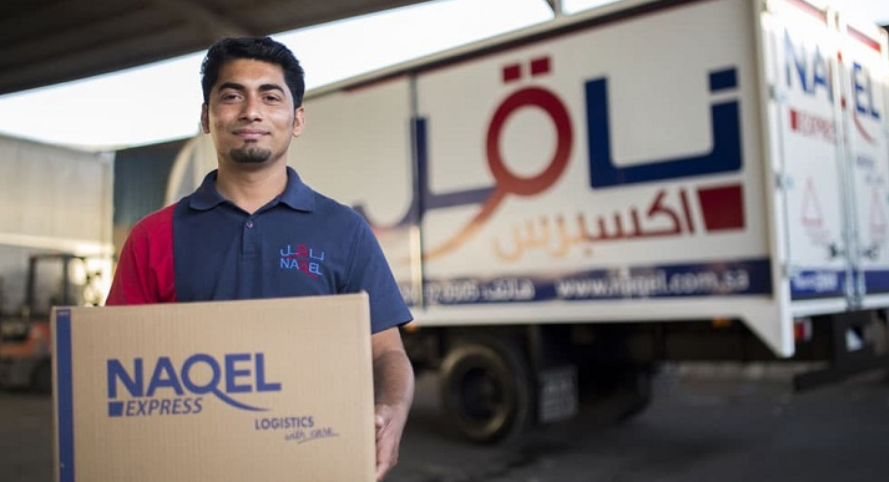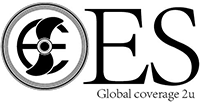Middle East Logistics: Saudi Naqel Express

Recently, due to the severe banning of the Amazon platform, the business in Europe and the United States has been severely affected. Everyone has begun to explore some emerging markets. Of course, the Middle East is one of the Nuggets, with an average customer unit price of around US$150. But I also want to remind everyone that when choosing a Middle East logistics company, you need to be cautious. You should not just look at the price, but also look at the local strength, compliance, and the security of fund recovery.
Those who are familiar with Middle East logistics are no strangers to NAQEL. It has a background in Saudi Post (51% shareholding), and was jointly funded by HALA (holding 49% shareholding). It started as a traditional bulk cargo transportation in Saudi Arabia in 1993 and is currently in Saudi Arabia. The logistics market occupies a leading position in the industry. The company has more than 5,000 employees, covering various businesses such as express delivery, general cargo, warehousing, and international freight forwarding. It has established subsidiaries in 14 countries around the world. UAE, Bahrain, Jordan, Lebanon, Egypt, Kuwait, Qatar, Oman, etc.
Around 2015, cross-border e-commerce in the Middle East suddenly emerged. The first group of people who ate crabs opened the door to Saudi Arabia. NAQEL began to expand its e-commerce logistics business with the help of a wave of e-commerce craze.
Due to the underdeveloped local manufacturing + industry in Saudi Arabia, the market demand is large, and most of them rely on imported products. As a major manufacturing country, China accounts for the bulk of Saudi imports. According to Daisy's memory, the first customer NAQEL contacted was also a Chinese customer, and the volume accumulation also increased gradually from small to large.
It is precisely in order to better serve the Chinese market and assist sellers to communicate with NAQEL more without obstacles. In 2018, NAQEL established subsidiaries in mainland China and Hong Kong.
Daisy’s evaluation of the Saudi e-commerce market is the same as everyone’s impression-a late start. E-commerce shopping in Saudi Arabia started in 2015, and it has only been 6 years so far. According to estimates, the e-commerce penetration rate is only about 5%, which is very low compared to developed markets such as China, the United States, and Europe. It is still slowly accepting, especially the 2020 epidemic has played a certain role in fueling e-commerce.
Some friends may be confused, but during the epidemic lockdown, many merchants did burst orders. NAQEL also faced a surge in the number of packages, but after the epidemic has passed, it will still decline. Where is the law for Saudi e-commerce to break the situation?
We unanimously believe that consumer trust is a large part of the influencing factor. As mentioned in previous articles on cross-border e-commerce transfers in the Middle East, for sellers, how the money comes out is very important, and for buyers, pay Whether the goods will be shipped is also very important. How to make buyers trust the seller? This is why the current COD ratio of Saudi international parts is still as high as 80%.
Fintech in the Middle East continues to innovate and develop. Service providers try various payment solutions to provide the platform. At the same time, the younger population is willing to try new things. In the end, people will screen out the most suitable consumers in this wave of enthusiasm. Psychological expectations and market payment schemes are also when the barriers are disintegrating.
NAQEL's warehouses in Saudi Arabia are divided into three categories: refrigerated and frozen special warehouses, e-commerce warehouses, and bulk warehouses, which are classified and managed for different goods.
In Saudi Arabia, NAQEL, which is equivalent to China Post, has the widest delivery network, and more than 4,000 self-owned vehicles are also a solid backing for NAQEL.
At present, NAQEL's delivery rate is relatively high, but APP customers, one-page version or mall delivery rates are not the same, because different e-commerce platforms have different operation models, different review and after-sales investment resources, and domestic logistics timeliness. Are not the same. For example, some platforms take too long to prepare the goods in the country, then it may wait for the goods to arrive in Saudi Arabia, and the customer has forgotten to buy this product, or has bought a new substitute before the package arrives.
and it will also be affected by some local holiday factors. Guests go to travel to escape the heat and no one is at home, so the delivery fails, which is also a factor that affects the delivery rate.
Customs clearance in Saudi Arabia requires either having its own customs clearance license or cooperating with customs brokers. As far as Saudi law is concerned, the principle of who clears who sends is adhered to. However, the implementation of control and control is not very strict, so many logistics companies also use it. Customs clearance licenses of other companies.
As a Saudi state-owned enterprise, NAQEL naturally has its own advantages. It has won the first customs clearance license in Saudi Arabia, allowing customs clearance by air, land, and sea ports within Saudi Arabia. It also holds an express license. It is the only Saudi Arabia that holds dual licenses. For express companies (it was revealed that the four major express companies also cooperated with other companies to clear customs), customs clearance compliance is the biggest highlight of NAQEL.
Customs clearance has been completed in public areas in Saudi Arabia. However, the optical machines are limited and the venue adopts a shift system. In peak seasons, goods from multiple companies are often waiting for customs clearance by the previous company, and the length of customs clearance is limited.
NAQEL has 24-hour self-operated customs supervision warehouses in the three major cities of Saudi Arabia, “Riyadh”, “Jeddah” and “Dammam”. It has its own X-ray machine and can be cleared immediately.
When referring to logistics advice for e-commerce sellers, Daisy emphasized that we must do a good job in the review process. Since the Saudi postal system is still under construction, we should ask customers for detailed addresses as much as possible, preferably with GPS positioning. . After sending out the goods, it is necessary to do a good job of tracking and feedback of logistics information, remind the seller that there are still packages in transit, and do a good job in after-sales service for customers. If they become repeat customers, they will reduce advertising costs to some extent.
NAQEL also has corresponding measures for the pain points of the end of the Saudi logistics market. Contact the recipient to make an appointment through SMS or WhatsApp in advance. At the same time, it also enters the estimated delivery time in the software. Each shipment has a corresponding GPS address. The delivery route of the courier is basically fixed. If there is an abnormality (for example, the customer is not at home), the customer will be sent a short message forecast, which can also increase the sign-off rate to a certain extent.
